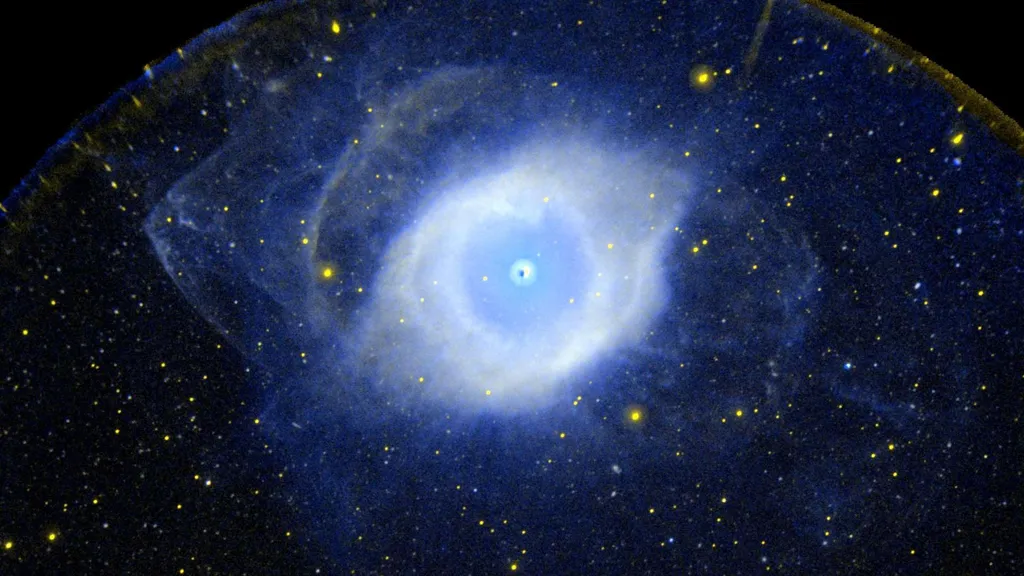Joe Riley
Seemly Member
- Joined
- Mar 11, 2025
- Messages
- 2,442
New research looking at the cosmological constant problem suggests the expansion of the universe could be an illusion.

Astronomers use the light from distant stars, such as the Helix Nebula seen here, to measure the apparent expansion of the universe. New research suggests there may be more to the picture that we're not seeing. (Image credit: NASA/JPL-Caltech/SSC)
"The expansion of the universe could be a mirage, a potentially controversial new study suggests."
"This rethinking of the cosmos also suggests solutions for the puzzles of dark energy and dark matter, which scientists believe account for around 95% of the total energy and matter in the universe but remain shrouded in mystery. The novel new approach is detailed in a paper published June 2 in the journal Classical and Quantum Gravity, by University of Geneva professor of theoretical physics Lucas Lombriser."
"Scientists know the universe is expanding because of redshift, the stretching of light's wavelength towards the redder end of the spectrum as the object emitting it moves away from us. Distant galaxies have a higher redshift than those nearer to us, suggesting those galaxies are moving ever further from Earth."
"More recently, scientists have found evidence that the universe's expansion isn't fixed, but is actually accelerating faster and faster. This accelerating expansion is captured by a term known as the cosmological constant, or lambda. The cosmological constant has been a headache for cosmologists because predictions of its value made by particle physics differ from actual observations by 120 orders of magnitude. The cosmological constant has therefore been described as "the worst prediction in the history of physics."
Our expanding universe: Age, history & other facts

Astronomers use the light from distant stars, such as the Helix Nebula seen here, to measure the apparent expansion of the universe. New research suggests there may be more to the picture that we're not seeing. (Image credit: NASA/JPL-Caltech/SSC)
"The expansion of the universe could be a mirage, a potentially controversial new study suggests."
"This rethinking of the cosmos also suggests solutions for the puzzles of dark energy and dark matter, which scientists believe account for around 95% of the total energy and matter in the universe but remain shrouded in mystery. The novel new approach is detailed in a paper published June 2 in the journal Classical and Quantum Gravity, by University of Geneva professor of theoretical physics Lucas Lombriser."
"Scientists know the universe is expanding because of redshift, the stretching of light's wavelength towards the redder end of the spectrum as the object emitting it moves away from us. Distant galaxies have a higher redshift than those nearer to us, suggesting those galaxies are moving ever further from Earth."
"More recently, scientists have found evidence that the universe's expansion isn't fixed, but is actually accelerating faster and faster. This accelerating expansion is captured by a term known as the cosmological constant, or lambda. The cosmological constant has been a headache for cosmologists because predictions of its value made by particle physics differ from actual observations by 120 orders of magnitude. The cosmological constant has therefore been described as "the worst prediction in the history of physics."
Our expanding universe: Age, history & other facts